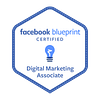Paid search ads can be a lot like most video games: simple to learn yet difficult to master. Here’s what you need to know in order to “win the click” in your own PPC ad campaign.
Back in the 1970s, When Atari founder Nolan Bushnell coined the phrase, easy to learn, hard to master to describe his video games, he wasn’t envisioning the concept being applied to internet marketing.
Yet that’s exactly how most business owners would describe their experience with pay-per-click advertising. There seem to be just a few simple concepts to learn (find keywords, create ad around them, set your budget and go!), yet they’re still not seeing the results they’d hoped for.
Here’s What the ‘Experts’ Will Tell You…
Since PPC advertising can be so effective, there’s no shortage of tips and advice on how to start an ad campaign and how to run one efficiently over time. Scan the Internet and you’ll find common verbiage like:
- Determine your goals, then set a budget.
- Research your keywords very thoroughly and use the right ones.
- Figure out when your target audience is online and run your ads during that time.
- Learn how to write effective Ads and Ad Groups
- Launch, measure, and tweak… constantly!
Don’t let those seemingly simple directives fool you, though: the successful PPC advertising campaign is famously elusive for all but the most experienced of ad managers. And for the uninitiated, it can be downright depressing to watch your money spiral away after you’ve spent hours trying to learn how to run your ads.
Tips are Fine, But How do You Break Through All the Competition and ‘Win the Click’?
Let’s say you have actually managed to master PPC and you’re doing everything right. You still might not be seeing the ROI you’d expected, and here’s why.
Earning that click is only partly determined by your PPC campaign. What makes the difference between your well-run campaign and your competitor’s is what’s occurred before consumers ever see your ads.
That is: the company who does the best job at establishing a relationship with the buyer before that buyer is in the market to buy, will see more clicks on their ad campaigns than the company who only runs the campaign and does nothing else.
So That’s Why You See All Those TV Ads in the Age of Digital!
Here we are in the age of digital advertising, yet some of the biggest brands are still investing heavily in TV advertising. Monster.com is among them, as is eBay. And the car industry has long been right up there with one of the largest ad spend budgets for TV.
Why all that investment in TV ads, when we have the Internet, with its laser-precise targeting and lower overall cost? Simple: consumers need to know who you are and what you represent before they’ll consider clicking on an ad that’s been served up cold. It’s really all about branding and relationship-building.
Customer Relationships are Everything for a Business
More so than many business owners realize, the key to winning over customers in the face of stiff competition is often not the product you’re offering but the way in which you offer it.
That’s why McDonald’s has free WiFi now. It’s why Nordstrom offers free shipping and returns with no minimum purchase. It’s why L.L. Bean has the most extraordinarily forgiving returns policy on earth.
Since the world has come online, it’s more important than ever to establish your business on a foundation of more than just a good product. There are so many more competitors out there, all working overtime to deliver roughly the same product for less. The way to stand out is to make an emotional connection with your potential customers, so when it comes time to make a purchase, they simply like your company better so they buy from you.
That’s because consumers prefer to do business with a brand they know. And if you can become not just the brand they know but the brand they love… that click is yours.
And could you possibly convey all that in a display ad?
In order to create a meaningful impression on your target audience, one that leaves them with the feeling that doing business with your company will somehow contribute to their lives or their business, you’ll have to build relationships outside the realm of the PPC world.
That’s Where TV and Radio Come In
Businesses that connect with the public in meaningful ways to make an impression are the ones who will see better results with the PPC campaigns, all other factors being equal.
Big brands like Geico, Aflac, GoDaddy, Monster.com, and eBay already know this. For years, they’ve been famously spending big bucks on harnessing the power of TV to connect emotionally with consumers.
Whether it’s TV, radio, or to a certain extent social media, the idea is to bring your brand alive so people have a rich assortment of positive associations with your company once they eventually see your company name again on a PPC ad.
Why are TV and radio so much more effective at this than even say, social media? Because it’s more difficult to illicit emotion with a display ad or text ad. Advertising on social media has its place in many successful digital marketing campaigns, but as a supplement to PPC, it falls short (especially when it comes to advertising in the automotive industry, for example).
Once They’re Searching for Your Product, It’s Too Late
A quick summary here: if you’ve read through this article then by now you see the importance of running a PPC ad campaign that’s not in isolation. It should be encased in a thick cloud of customer-engaging, brand-developing, media-rich marketing that lets people know who you are and invites them to make an emotional connection with your company.
A final word: don’t forget that timing is everything. The idea here is to connect with your potential customers long before they even know they want your product or service. Once a customer starts searching online for a car, a lawyer, a roofing company, a carpet cleaner, a plumber… the business that has connected with them already – especially if it’s been in an emotional way – will win the click.
If you want to maximize your overall marketing strategy for 2016 and 2017, call us at H&S Marketing.


